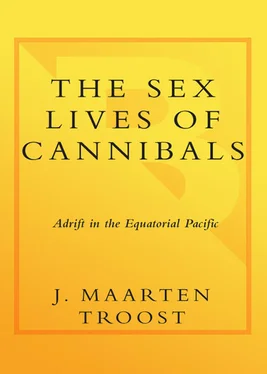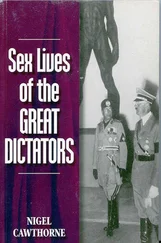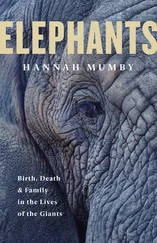J. Maarten Troost - The Sex Lives of Cannibals
Здесь есть возможность читать онлайн «J. Maarten Troost - The Sex Lives of Cannibals» весь текст электронной книги совершенно бесплатно (целиком полную версию без сокращений). В некоторых случаях можно слушать аудио, скачать через торрент в формате fb2 и присутствует краткое содержание. Город: New York, Год выпуска: 2004, ISBN: 2004, Издательство: Broadway Books, Жанр: Биографии и Мемуары, Путешествия и география, Юмористическая проза, на английском языке. Описание произведения, (предисловие) а так же отзывы посетителей доступны на портале библиотеки ЛибКат.
- Название:The Sex Lives of Cannibals
- Автор:
- Издательство:Broadway Books
- Жанр:
- Год:2004
- Город:New York
- ISBN:978-0-7679-1895-4
- Рейтинг книги:5 / 5. Голосов: 1
-
Избранное:Добавить в избранное
- Отзывы:
-
Ваша оценка:
- 100
- 1
- 2
- 3
- 4
- 5
The Sex Lives of Cannibals: краткое содержание, описание и аннотация
Предлагаем к чтению аннотацию, описание, краткое содержание или предисловие (зависит от того, что написал сам автор книги «The Sex Lives of Cannibals»). Если вы не нашли необходимую информацию о книге — напишите в комментариях, мы постараемся отыскать её.
The Sex Lives of Cannibals — читать онлайн бесплатно полную книгу (весь текст) целиком
Ниже представлен текст книги, разбитый по страницам. Система сохранения места последней прочитанной страницы, позволяет с удобством читать онлайн бесплатно книгу «The Sex Lives of Cannibals», без необходимости каждый раз заново искать на чём Вы остановились. Поставьте закладку, и сможете в любой момент перейти на страницу, на которой закончили чтение.
Интервал:
Закладка:
I should perhaps pause here for a moment and mention something of my courtship with Sylvia. It was a night of possiblity. The air was redolent of wheat, hops, and barley. A kindly gentleman, his dreadlocks flowing, made polite introductions. I suavely filled her plastic cup with Budweiser. Her eyes sparkled. Soon, a few dates, some soulful conversation, several well-timed romantic gestures, a stirring hike in the Appalachian Mountains, up where eagles soared, and we moved in together, sharing a charming apartment with an enormous deck shaded by an ancient elm, on a narrow street illuminated by gaslights in Washington’s hip, predominately gay neighborhood of Dupont Circle. We were smitten. We pledged to follow each other to the ends of the Earth. (“ Pphhhttt ,” said Sylvia, upon reading, over my shoulder. “What drivel.”)
Sylvia got the first potentially interesting, exciting, possibly dangerous job nibble. Sarajevo beckoned. She was being considered for a position as a program officer with a refugee agency. She had a phone interview and I watched, standing in our living room, silently cheering yes, good answer! , but, in a loss for Bosnia, she was passed over for lack of experience. Then I got the call. Tanzania this time. I was being considered for a position as a press liaison for a refugee agency that operated a camp for 500,000 Rwandan refugees. I am pretty good at compartmentalizing and I figured that I could balance the wretchedness of the camps, and the dismal fact that they contained the Hutu perpetrators of genocide, with safari-type excursions and remain sane. But the guy who had the job decided that one year of liaising between the Rwandan refugees and the world press was not quite enough and so he decided to stay for another year, which upon reflection was probably just as well. And then nothing, just a few letters thanking us for our interest in the program coordinator position in Sudan, or Angola, or Cambodia, but unfortunately, et cetera, et cetera. A change of strategy was called for. If no one was going to send us to an exotic locale then we would just go ourselves and make the best of it.
We decided to move to Hanoi. We would do this by moving out of our apartment and into the basement of my mother’s house, where we would live for three months and save enough money to get going in Vietnam. My mother, inexplicably, was not opposed to this and we were about to give notice to our landlord when Sylvia called me at work and asked if I would be inclined to move to a small atoll in the Equatorial Pacific and whether I would be able to do so in about three weeks’ time. She had been offered a position as country director for the Foundation for the Peoples of the South Pacific–Kiribati Office. Five seconds later I quit my job. Then I called Sylvia back.
“Kiri-what?”
CHAPTER 2
In which the Author reveals the Fruit of his Research into the Strange Island Nation he has declared his new Home (which leaves much unknown), compensates for his Ignorance with his Lively Imagination (which is inadequate, very much so), and Packs (inappropriately).
The word Kiribati , pronounced kir-ee-bas on account of the missionaries being stingy with the letters they used to transcribe the local language, is derived from the word Gilberts , which is the name of one of the three island groups that comprise this improbable nation. Located just a notch above the equator and five thousand miles from anywhere, Tarawa is the capital of this country of thirty-three atolls scattered over an ocean area as large as the continental United States. The total landmass of these islands is about three hundred square miles, roughly the size of the greater Baltimore metropolitan area, though I believe it halves at high tide. Most of Kiribati’s landmass is found on Kiritimati Island (Christmas Island), several thousand miles away from Tarawa. What remains is not much.
To picture Kiribati, imagine that the continental U.S. were to conveniently disappear leaving only Baltimore and a vast swath of very blue ocean in its place. Now chop up Baltimore into thirty-three pieces, place a neighborhood where Maine used to be, another where California once was, and so on until you have thirty-three pieces of Baltimore dispersed in such a way so as to ensure that 32/33 of Baltimorians will never attend an Orioles game again. Now take away electricity, running water, toilets, television, restaurants, buildings, and airplanes (except for two very old prop planes, tended by people who have no word for “maintenance”). Replace with thatch. Flatten all land into a uniform two feet above sea level. Toy with islands by melting polar ice caps. Add palm trees. Sprinkle with hepatitis A, B, and C. Stir in dengue fever and intestinal parasites. Take away doctors. Isolate and bake at a constant temperature of 100 degrees Fahrenheit. The result is the Republic of Kiribati.
Of course, I didn’t know all this at the time. Despite insinuations otherwise (“Imagine a littered, stinking sandbar in the middle of nowhere,” relayed a prior visitor to the island, “That’s Tarawa”), I knew, just knew, that distant Tarawa would be the proverbial tropical paradise, where the natives were kind and noble, and the setting, undoubtedly lush and languid, would prove inspirational for ambitious endeavors of an artistic and edifying nature. I knew this because I had little else to go on, and when unaware I tend to be buoyantly optimistic. There is only so much research one can do on a place like Kiribati. It appears that for some reason no one goes there. Not even Paul Theroux bothered stopping by on his journey through the Pacific, which he wrote about in The Happy Isles of Oceania . When one considers how much territory Theroux, Bruce Chatwin, Jan Morris, and the other superstars of the travel-writing genre have covered, there really isn’t much left for others to scribble about, except maybe Kiribati and Buffalo, New York. I’ve been to Buffalo, but I will graciously leave that commentary for someone else and instead present a few interesting tidbits about Kiribati. Henceforth, the facts, as gleaned from the Internet, the Central Intelligence Agency, and random sources:
Population (1996)—79, 386
Life Expectancy (male)—52.56 years
Life Expectancy (female)—55.78 years
Infant Mortality Rate—9.84%
Religions—Roman Catholic, Protestant, Seventh-Day Adventist, Baha’i, Church of God of North Carolina, Mormon
Number of Islands—33
Number of Inhabited Islands—21
Ratio of Sea to Land—4000:1
Natural Resources—Phosphate (production halted in 1979)
Independence—July 12, 1979 (from the United Kingdom)
Foreign Missions—Australia, New Zealand, the People’s Republic of China
Arable Land—0%
Terrain—Low-lying coral atolls with extensive reefs
Currency—Australian dollar
Per Capita GDP—A $800 (US $450 approx.)
Underemployment Rate—70%
Exports—Copra, fish, shark fins
Radio—AM 1, FM 0, Shortwave 0
Television—None
Military—None
From this I discerned that if I wanted to live for longer than 52.56 years I’d best get my shots; that solid bowel movements might become worthy of some celebration; that there is something about the Church of God of North Carolina that gives me the creeps (ditto the Mormon church); that the end of phosphate production and the beginning of independence is perhaps not entirely coincidental; that China is probably up to no good in Kiribati; that with 70 percent of the country underemployed I would fit in just fine, professionally speaking; that shark fin exports suggest the presence of sharks; and that despite some snobbishness vis-à-vis my relationship to American pop culture, I might, just might, start yearning for The Simpsons and televised professional football games.
Читать дальшеИнтервал:
Закладка:
Похожие книги на «The Sex Lives of Cannibals»
Представляем Вашему вниманию похожие книги на «The Sex Lives of Cannibals» списком для выбора. Мы отобрали схожую по названию и смыслу литературу в надежде предоставить читателям больше вариантов отыскать новые, интересные, ещё непрочитанные произведения.
Обсуждение, отзывы о книге «The Sex Lives of Cannibals» и просто собственные мнения читателей. Оставьте ваши комментарии, напишите, что Вы думаете о произведении, его смысле или главных героях. Укажите что конкретно понравилось, а что нет, и почему Вы так считаете.












